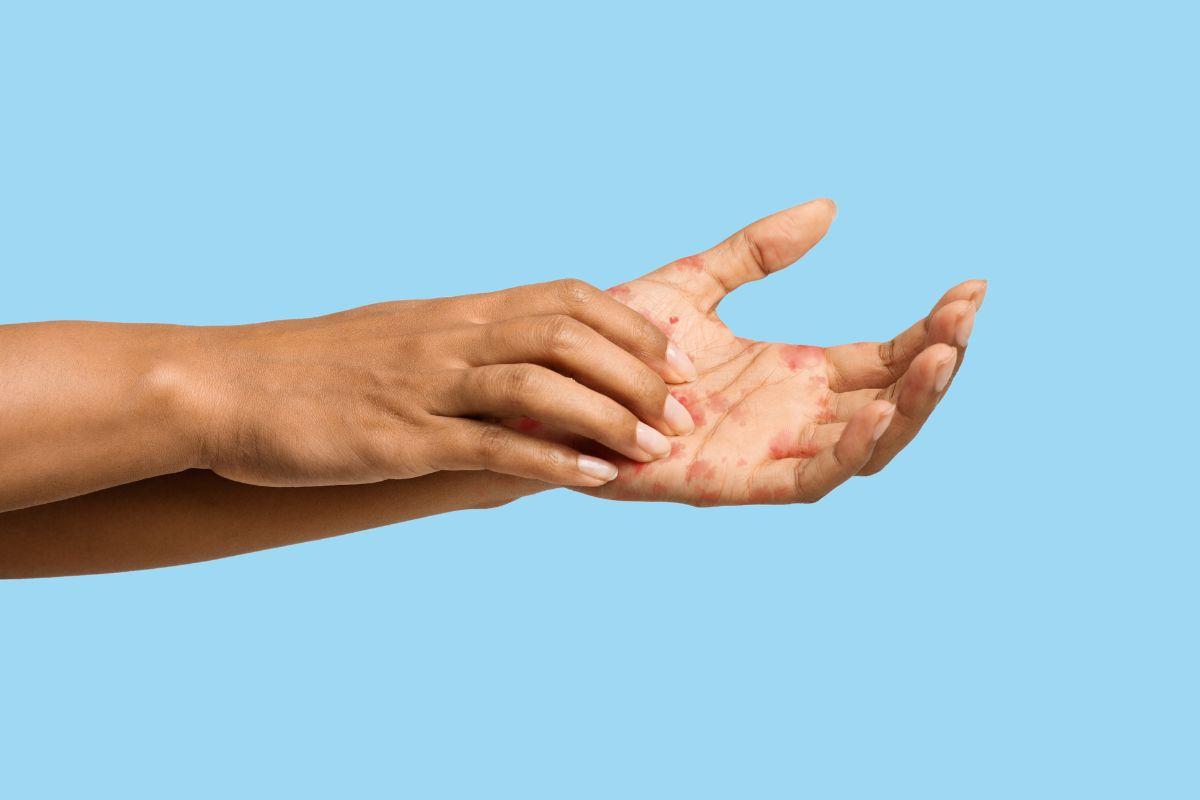Living with atopic eczema can be frustrating. Flare-ups often appear at the worst times, leaving skin sore, itchy, and uncomfortable — and they can affect confidence as much as physical wellbeing.
While there is no permanent cure, the good news is that eczema can be managed. With the right daily care and professional guidance, many people keep symptoms under control and enjoy long stretches of calm skin.
Dermatologists listed on Doctify can help create treatment plans tailored to your lifestyle and triggers, so you don’t have to manage eczema alone.
What is atopic eczema?
Atopic eczema (also called atopic dermatitis) is a chronic skin condition where the skin barrier doesn’t work as effectively as it should. This makes the skin prone to dryness, inflammation, and irritation.
Common symptoms include:
- Persistent itching
- Red, inflamed patches
- Dry, flaky or cracked skin
- Periodic flare-ups
Triggers vary from person to person, but often include allergens (like dust mites or pollen), irritants (soaps, detergents), weather changes, or stress.
The key to control is a consistent skincare routine and early action when flare-ups begin.
7 Proven tips to control atopic eczema
1. Moisturise daily
Moisturising is the cornerstone of eczema care. Thick, fragrance-free creams or ointments help to lock in hydration, especially if applied straight after bathing. Regular use throughout the day can make flare-ups less frequent and less intense.
2. Learn your triggers
Everyone’s eczema has its own “set off” points, whether it’s dust, pets, strong soaps, or stress. Keeping a diary of flare-ups can help you connect symptoms to possible causes. Reducing or avoiding triggers often makes a noticeable difference.
3. Treat flare-ups quickly
When flare-ups occur, prescribed treatments may be necessary. Topical steroids reduce inflammation, while non-steroid options such as calcineurin inhibitors are useful for delicate areas like the eyelids. Following your dermatologist’s instructions ensures these treatments are safe and effective.
4. Choose gentle skincare
Simple changes in daily routines help protect sensitive skin. Switch harsh soaps for mild cleansers, avoid bubble baths, and gently pat your skin dry with a towel instead of rubbing.
5. Dress for comfort
Cotton and bamboo fabrics are kind to eczema-prone skin, while wool or synthetics often worsen irritation. Washing new clothes before wearing can also help by removing chemicals that may aggravate the skin.
6. Manage stress and sleep well
Stress is a known trigger for eczema, so calming techniques such as mindfulness, yoga, or deep breathing may reduce flare-ups. Good sleep habits — like keeping a cool bedroom and short nails to avoid scratching at night — also make a difference.
7. Seek professional support
If your eczema is severe, widespread, or not responding to over-the-counter creams, it’s time to see a dermatologist. Treatments such as light therapy or advanced prescription creams may be recommended. Doctify makes it easy to connect with trusted eczema specialists for long-term care.
Beyond the basics
Small daily habits add up to big improvements. Short, lukewarm baths are better than long hot showers. Applying heavier ointments at night and lighter creams during the day keeps skin hydrated around the clock. For more severe cases, wet wrap therapy can be a soothing option under specialist guidance.
Preventing and managing Flares
Spotting flare-ups early can stop them from worsening. Look for:
- Itching or redness before a rash appears.
- Dryness in usual “hotspots” like elbows and knees.
Act quickly with moisturisers or prescribed treatments. Follow your doctor’s instructions carefully to avoid “over-treating.”
Living with eczema: Emotional wellbeing
Eczema doesn’t just affect the skin — it can affect self-esteem, sleep, and daily confidence. Many people feel frustrated or embarrassed during flare-ups, but it’s important to remember that symptoms often improve with age and consistent care. Support groups and counselling can also help children, teens, and adults cope more positively.
When to see a dermatologist
Frequent flare-ups, lack of improvement with basic moisturisers, or signs of infection such as crusting or pain are clear signs to seek professional care. A dermatologist can offer tailored advice and access to advanced treatments that bring long-term relief.
Conclusion
Atopic eczema may be long-term, but it doesn’t have to control your life. With the right skincare routine, awareness of triggers, and timely medical advice, symptoms can be managed successfully.
Booking a consultation with a dermatologist through Doctify ensures you get expert, personalised care to make your day-to-day life more comfortable.
Find the right specialist for you. Doctify uses verified reviews so you can make the best decision for your healthcare.

Find the best Dermatologists in the United Kingdom, or search for trusted experts globally:
- Dermatologists in Ireland
- Dermatologists in Australia
- Dermatologists in the United Arab Emirates
- Dermatologists in Germany
Medically Reviewed
Last reviewed on 27/09/2025




